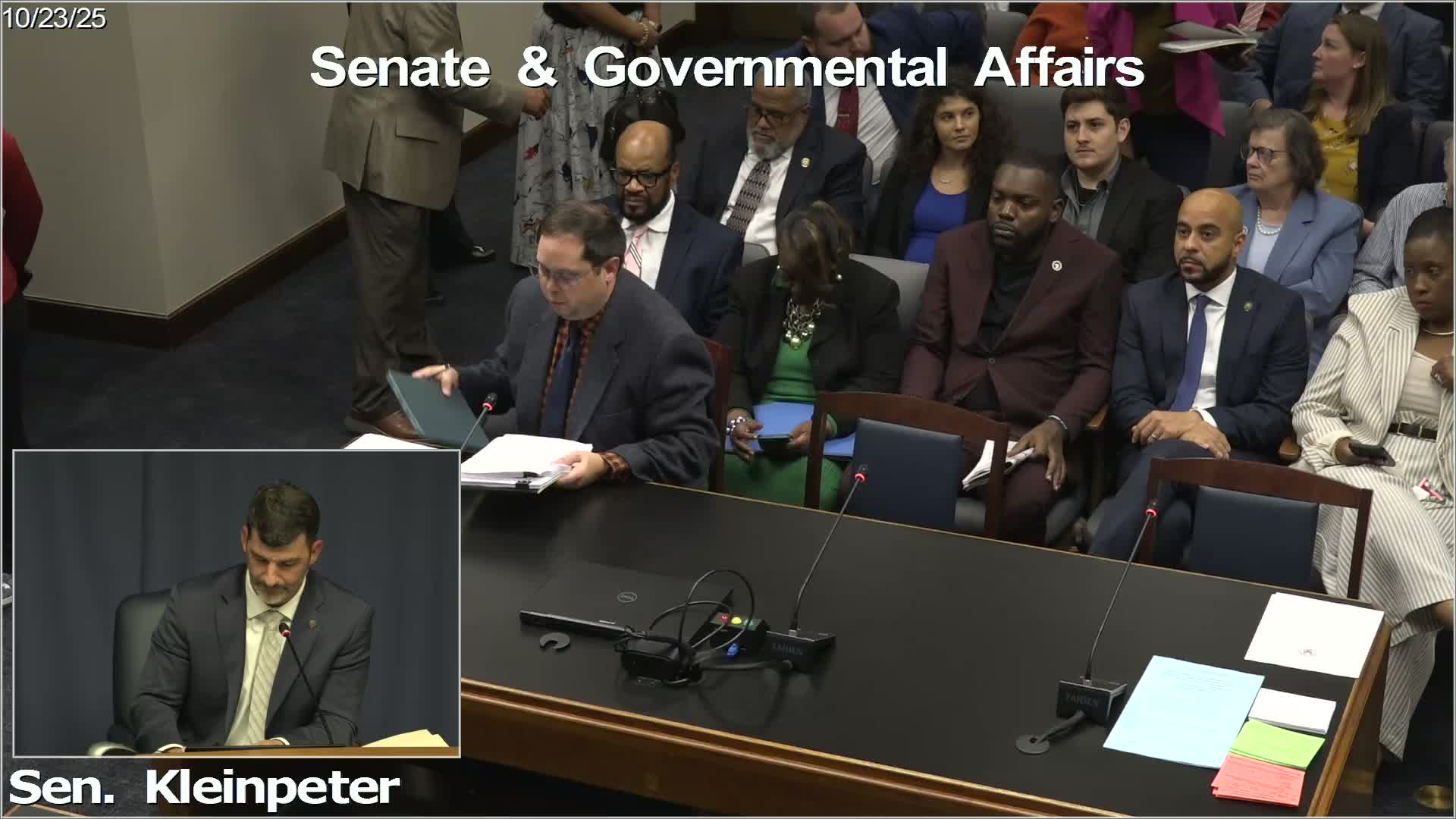Committee hears lengthy debate on SB1 to move closed-party primary and qualifying dates; secretary of state says office can implement changes
Get AI-powered insights, summaries, and transcripts
Subscribe
Summary
Senators questioned SB1, which would move closed-party primary and runoff dates from April–May to May–June for the 2026 cycle and adjust related qualifying, petition and reporting deadlines. Senator Jenkins raised constitutional and Purcell concerns; the First Assistant Secretary of State said the office can implement the changes as drafted.
Senators engaged in an extended hearing Oct. 23 on SB1, a bill the committee chair presented to move closed-party primary and runoff dates for the 2026 cycle and to adjust a range of related deadlines for qualifying, nominating petitions and campaign reporting.
Senator Klompeter, who handled the bill from the chair, described SB1 as a simple measure "We're just changing the close party primary dates and the closed party election runoff dates from April and May to May and June. So that would be the 4 18 election would go to 05/16."
Senator Jenkins pressed the chair and staff on the bill's scope and timing, repeatedly warning that the Legislature is months away from qualifying for the 2026 cycle and that changing deadlines now could cause voter confusion and raise constitutional concerns under the Fourteenth and Fifteenth Amendments and the Purcell principle (court-ordered changes near an election). Jenkins asked why the bill repeatedly uses "notwithstanding" language to suspend existing election-code deadlines for 2026 and said the measure appears to be driven in part by anticipation of a pending U.S. Supreme Court ruling about congressional maps.
The bill would, for the 2026 cycle only, push qualifying and primary deadlines back (committee discussion cited moving the qualifying date from Jan. 14, 2026, to Feb. 11, 2026), treat nominating-petition signatures collected on or after Sept. 16, 2025, as timely for offices with qualifying opening Feb. 11, 2026, and in some cases change geographic signature requirements (for example, signatures for U.S. House candidates that are now required by district would be counted statewide under the bill's temporary rules).
SB1 also contains language that would make a committee's failure to file certain campaign finance reports by Nov. 20, 2025, not a violation of Chapter 11 — language Jenkins said raises transparency concerns because the bill as drafted does not set a new final filing deadline.
Catherine Newsome, First Assistant Secretary of State, told the committee she and staff worked with the bill author on technical drafting and that the Department of State "can, in its current form, proceed as the bill outlines with implementation as far as election administration." Newsome explained that nominating petitions would be due 20 days before qualifying, so if qualifying were pushed to Feb. 11, nominating petitions would be due Jan. 14, 2026. She said some signatures already gathered by candidates would remain valid and that the changes generally "give them more flexibility."
On fiscal and administrative questions, Newsome said she had met internally with elections, IT and communications staff and that reprogramming and outreach work could be done in-house; a later exchange indicated the fiscal office had been asked for a fiscal note. Senator Sellers asked whether the special session itself incurred a cost; Newsome said the reprogramming and administrative work could be absorbed and that statewide elections for May and June had already been appropriated in the current fiscal year.
Senator Jenkins and others repeatedly argued that the measure is speculative because it prepares for an uncertain Supreme Court outcome and that making temporary, election-year-only exceptions to long-standing deadlines could create legal risk. Senator Amigos and others countered that moving the dates could protect voters if the courts alter maps.
No final committee vote on SB1 was recorded in the hearing transcript; the discussion ended with further committee questioning and testimony and the chair indicating he would take additional amendments or clarifications between the committee hearing and floor consideration.
The committee received additional procedural testimony and brief exchanges about emergency rule language, communications to parish registrars, and how municipal and local propositions and special elections intersect with the statewide calendar changes.
